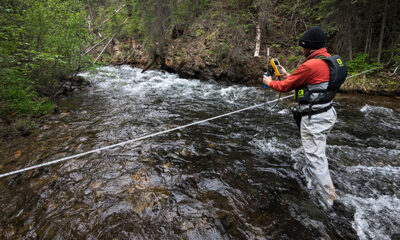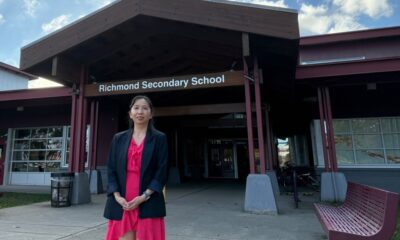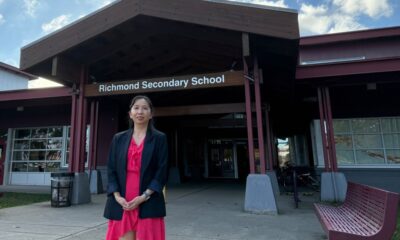Top Stories
UBC Professor Links Disasters to Forest Management in BC

URGENT UPDATE: New research from UBC professor Younes Alila reveals alarming connections between natural disasters and forest management practices in British Columbia (BC). This critical study, released earlier today, underscores how inadequate forestry strategies exacerbate the impact of floods and forest fires, which have devastated communities across the province in recent years.
The analysis highlights that as climate change intensifies, BC’s forests are increasingly vulnerable. In 2023 alone, the province has faced unprecedented fires, with over 1 million acres scorched and thousands of residents displaced. Alila’s findings emphasize the urgent need for a reevaluation of current forest policies to mitigate these catastrophic effects.
“The link between our forest management and the increasing frequency of disasters is undeniable,” Alila stated in a press conference. His research indicates that improper forest thinning and the neglect of natural fire cycles contribute significantly to the severity of these incidents. With rising temperatures and fluctuating precipitation patterns, BC is at a tipping point that demands immediate action.
Authorities are now calling for a comprehensive review of forestry practices across the province. Alila’s work advocates for a shift towards more sustainable management, which could potentially reduce the risk of future disasters. The emotional toll on affected communities is immense, with families losing homes and livelihoods as wildfires rage and floodwaters rise.
This pivotal study is not just an academic exercise; it serves as a wake-up call for policymakers. The research highlights the pressing need for investment in forest restoration and proactive measures to safeguard communities. As Alila puts it, “If we do not act now, we will continue to see a cycle of destruction that will only worsen.”
With the province currently in the midst of recovery from last year’s catastrophic wildfire season, the implications of Alila’s findings are profound. British Columbia is grappling with the long-term impacts on both its environment and its economy, as tourism and forestry industries face uncertainty.
Next steps involve a collaborative approach among government officials, environmental scientists, and local communities. The urgency to implement effective forest management strategies cannot be overstated. As more data emerges, stakeholders are encouraged to engage in discussions that prioritize sustainable practices for the future.
What to watch for: As BC prepares to address the findings from Alila’s research, look for upcoming announcements from provincial authorities regarding changes in forestry regulations and disaster preparedness initiatives. The hope is that these changes will not only mitigate future disasters but also foster resilience in the face of climate change.
This is a developing story, and we will continue to provide updates as more information becomes available. Stay tuned for critical developments that will shape the future of BC’s forestry management and disaster response strategies.
-

 World3 months ago
World3 months agoScientists Unearth Ancient Antarctic Ice to Unlock Climate Secrets
-

 Entertainment3 months ago
Entertainment3 months agoTrump and McCormick to Announce $70 Billion Energy Investments
-

 Lifestyle3 months ago
Lifestyle3 months agoTransLink Launches Food Truck Program to Boost Revenue in Vancouver
-

 Science3 months ago
Science3 months agoFour Astronauts Return to Earth After International Space Station Mission
-

 Technology2 months ago
Technology2 months agoApple Notes Enhances Functionality with Markdown Support in macOS 26
-

 Top Stories2 weeks ago
Top Stories2 weeks agoUrgent Update: Fatal Crash on Highway 99 Claims Life of Pitt Meadows Man
-

 Sports3 months ago
Sports3 months agoSearch Underway for Missing Hunter Amid Hokkaido Bear Emergency
-

 Politics3 months ago
Politics3 months agoUkrainian Tennis Star Elina Svitolina Faces Death Threats Online
-

 Technology3 months ago
Technology3 months agoFrosthaven Launches Early Access on July 31, 2025
-

 Politics3 months ago
Politics3 months agoCarney Engages First Nations Leaders at Development Law Summit
-

 Entertainment3 months ago
Entertainment3 months agoCalgary Theatre Troupe Revives Magic at Winnipeg Fringe Festival
-

 Politics2 weeks ago
Politics2 weeks agoShutdown Reflects Democratic Struggles Amid Economic Concerns





















